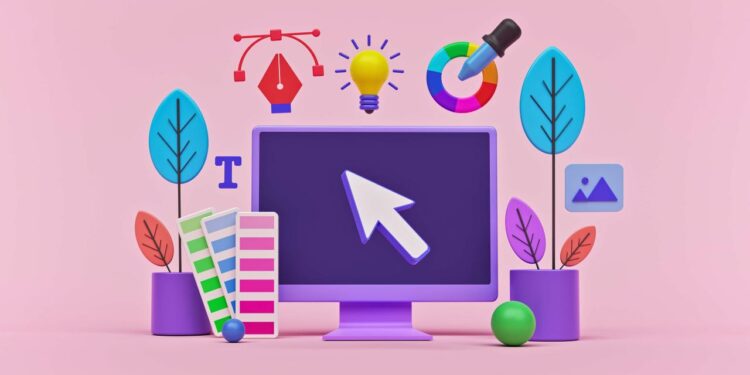In the swiftly evolving landscape of the 21st century, digital skills have transformed from mere advantages into fundamental necessities. For individuals across all ages, but especially for young people navigating a world increasingly shaped by technology, proficiency in these skills is no longer optional; it is the cornerstone for empowering futures. From basic computer literacy to advanced coding and data analysis, these competencies unlock opportunities in education, employment, entrepreneurship, and active civic participation, serving as the critical bridge between traditional knowledge and the demands of the modern, interconnected world. Understanding the breadth and depth of digital skills, and the profound impact they exert, is essential for anyone seeking to thrive in the years to come.
The Digital Imperative

Just as reading, writing, and arithmetic formed the bedrock of education in previous centuries, digital literacy is now the new fundamental. It’s not simply about knowing how to use a computer; it’s about understanding how technology functions, how to leverage it effectively, and how to adapt to its continuous evolution. This new literacy is a prerequisite for engagement in almost every sector of modern life.
A. The Expanding Definition of Digital Literacy
The concept of “digital skills” is dynamic, continually broadening to encompass a wider array of competencies as technology advances.
- Basic Digital Literacy: This foundational layer includes the ability to use common operating systems, navigate the internet, use email, and work with basic office software (word processing, spreadsheets, presentations). It’s the equivalent of functional literacy in the analog world.
- Information Literacy: This involves the ability to find, evaluate, and effectively use information from digital sources. It includes discerning credible sources, understanding algorithmic biases, and recognizing misinformation.
- Communication and Collaboration Skills: Proficiency in using digital tools for communication (video conferencing, instant messaging) and collaboration (cloud-based documents, project management software) is essential for teamwork in virtual environments.
- Digital Creation Skills: Moving beyond consumption, this includes the ability to create digital content—from basic image editing and video creation to more complex tasks like web design or 3D modeling.
- Digital Safety and Ethics: Understanding cybersecurity basics (passwords, phishing), protecting personal privacy online, recognizing cyberbullying, and adhering to ethical digital citizenship principles are paramount.
- Computational Thinking: This involves problem-solving approaches used in computer science, such as breaking down complex problems, recognizing patterns, abstracting ideas, and designing algorithms. It’s a mindset, not just a coding skill.
B. The Driving Forces Behind Digital Skill Demand
Several macro trends underpin the surging demand for digital skills across all sectors.
- Technological Advancement: The relentless pace of innovation, from AI and automation to blockchain and the Internet of Things (IoT), means new tools and platforms are constantly emerging, requiring continuous learning and adaptation.
- Digital Transformation: Businesses, governments, and educational institutions worldwide are undergoing digital transformation, integrating technology into every aspect of their operations, thus demanding a digitally skilled workforce.
- Global Interconnectedness: The internet has dissolved geographical barriers, making digital communication and collaboration essential for global trade, research, and cultural exchange.
- The Gig Economy and Remote Work: The rise of remote work and the gig economy relies heavily on digital tools for communication, project management, and delivering services, empowering individuals with digital skills to work flexibly and globally.
- Data Explosion: The sheer volume of data being generated requires individuals who can understand, analyze, and interpret it, leading to a high demand for data literacy and analytical skills.
Digital Skills as Transforming Opportunities
Possessing a robust set of digital skills acts as a powerful catalyst, unlocking a myriad of opportunities across various dimensions of life, making individuals more competitive and adaptable.
A. Unlocking Economic Potential and Employment
In today’s job market, digital skills are often the primary currency, opening doors to diverse career paths and fostering economic resilience.
- Enhanced Employability: Across virtually all industries—from healthcare and finance to manufacturing and retail—employers increasingly seek candidates with strong digital competencies, making digitally skilled individuals more attractive in a competitive job market.
- Access to High-Growth Sectors: Proficiency in areas like software development, data science, cybersecurity, digital marketing, and AI enables entry into some of the fastest-growing and highest-paying sectors of the global economy.
- Entrepreneurial Avenues: Digital skills empower individuals to start and manage their own businesses with lower overheads. Web design, e-commerce platforms, social media marketing, and online payment systems allow aspiring entrepreneurs to reach global markets from their homes.
- Remote Work Opportunities: Strong digital skills enable individuals to access a global talent market, securing remote positions that offer greater flexibility and work-life balance, regardless of geographical location.
- Career Advancement and Upskilling: For existing workers, acquiring new digital skills is crucial for career progression, adapting to new technologies in their field, and avoiding job displacement due to automation.
B. Revolutionizing Education and Learning
Digital skills are transforming how we learn, making education more personalized, accessible, and engaging than ever before.
- Personalized Learning Experiences: Digital tools, often powered by AI, can adapt to individual learning styles and paces, providing tailored content, feedback, and support, enhancing comprehension and retention.
- Access to Global Knowledge: The internet offers an unparalleled repository of information, courses, and educational resources from leading institutions worldwide, democratizing access to knowledge previously reserved for a privileged few.
- Collaborative Learning Environments: Digital platforms facilitate peer-to-peer learning, group projects, and discussions across geographical boundaries, fostering teamwork and communication skills.
- Lifelong Learning: Digital skills enable continuous learning through online courses (MOOCs), webinars, and digital libraries, allowing individuals to stay current in rapidly changing fields and adapt to new career demands.
- Enhanced Research Capabilities: Proficiency in using online databases, academic search engines, and data analysis tools empowers students to conduct more comprehensive and insightful research.
C. Fostering Civic Engagement and Social Impact
Beyond personal and professional gains, digital skills empower individuals to become more active and informed citizens, driving social change.
- Informed Citizenship: The ability to critically evaluate online news, access diverse perspectives, and understand complex data empowers individuals to make more informed decisions about social and political issues.
- Advocacy and Activism: Digital platforms provide powerful tools for civic engagement, allowing individuals to raise awareness for causes, organize movements, sign petitions, and communicate directly with policymakers, amplifying their collective voice.
- Community Building: Digital skills facilitate the creation and maintenance of online communities around shared interests or social causes, fostering belonging and collective action.
- Access to Public Services: Increasingly, government services, healthcare information, and community resources are delivered online. Digital literacy ensures equitable access to these essential services.
- Promoting Inclusion: Digital tools can help bridge gaps for marginalized groups, providing platforms for self-expression, communication, and access to resources that may be otherwise unavailable.
Navigating the Digital Road Ahead
While the benefits of digital skills are undeniable, their pervasive nature also presents challenges that require thoughtful strategies to ensure equitable access and responsible use.
A. The Digital Divide
Despite widespread technological adoption, significant disparities in access to technology and digital literacy persist.
- Access to Infrastructure: Many communities, especially in rural or developing regions, lack reliable high-speed internet access and affordable devices, creating a fundamental barrier to digital skill development.
- Socioeconomic Disparities: Individuals from lower-income households may not have the financial resources for necessary hardware, software, or internet subscriptions, exacerbating existing inequalities.
- Education and Training Gaps: Inadequate digital literacy education in schools, combined with a lack of affordable training programs for adults, leaves significant portions of the population unprepared for the digital economy.
- Generational Gaps: Older generations, who were not digital natives, may face greater challenges in acquiring new digital skills, potentially leading to social and economic exclusion.
B. Ethical and Societal Concerns
The increased reliance on digital tools also raises critical ethical and societal questions.
- Privacy and Data Security: With more digital interactions, individuals face heightened risks of data breaches, identity theft, and algorithmic surveillance. A lack of digital literacy can make individuals more vulnerable.
- Misinformation and Disinformation: The ease of creating and spreading false information online demands sophisticated digital literacy skills to critically evaluate sources and discern truth from falsehood.
- Algorithmic Bias: Digital tools, especially those powered by AI, can perpetuate or even amplify existing societal biases if not developed and used ethically, leading to discriminatory outcomes.
- Digital Well-being and Mental Health: Excessive screen time and constant connectivity, facilitated by digital tools, can contribute to digital fatigue, anxiety, and social isolation if not managed mindfully.
- Job Automation and Displacement: While new jobs emerge, digital skills also enable automation, which can displace workers in routine roles, necessitating continuous reskilling and upskilling initiatives.
C. The Challenge of Continuous Learning
The rapid pace of technological change means digital skills quickly become outdated, posing a continuous challenge for individuals and education systems.
- Rapid Obsolescence: Skills learned today might be less relevant tomorrow. This necessitates a mindset of lifelong learning and adaptability, requiring ongoing investment in training and education.
- Keeping Curricula Current: Educational institutions struggle to update their curricula fast enough to keep pace with industry demands and emerging technologies.
- Reskilling and Upskilling: Governments and businesses face the daunting task of reskilling entire workforces to meet the demands of a digitally transformed economy.
Cultivating a Digitally Empowered Society
To ensure that digital skills truly empower futures for all, a comprehensive and collaborative strategy involving governments, educational bodies, industry, and individuals is essential.
A. Investing in Education and Training
Education systems must be at the forefront of digital skill development, from early childhood to adult learning.
- Early Digital Literacy: Integrate foundational digital literacy into primary school curricula, teaching basic computer use, online safety, and computational thinking from a young age.
- STEM and Coding Education: Promote Science, Technology, Engineering, and Mathematics (STEM) education, including coding and data science, as core components of secondary and higher education.
- Digital Citizenship: Implement comprehensive digital citizenship programs that teach ethical online behavior, critical evaluation of information, and responsible social media use.
- Vocational Training and Apprenticeships: Develop and fund vocational programs and apprenticeships that offer practical, industry-aligned digital skills training.
- Lifelong Learning Initiatives: Establish accessible, affordable, and flexible online and offline programs for adults to reskill and upskill in digital competencies, ensuring no one is left behind in the digital economy.
B. Bridging the Digital Divide
Concerted efforts are needed to ensure equitable access to technology and digital education.
- Infrastructure Investment: Governments must prioritize investment in robust, affordable, and widespread broadband internet infrastructure, particularly in underserved rural and remote areas.
- Affordable Devices and Connectivity: Subsidize or provide programs that make digital devices and internet access more affordable for low-income households.
- Public Access Points: Establish and maintain public access computing facilities in libraries, community centers, and schools.
- Digital Inclusion Programs: Fund non-profit organizations and community initiatives that provide digital literacy training and support to marginalized groups, including the elderly, persons with disabilities, and low-income communities.
C. Industry Collaboration and Ethical Development
The technology industry has a crucial role in both demanding digital skills and ensuring their ethical application.
- Partnerships with Education: Collaborate with educational institutions to align curricula with industry needs, provide internships, and share expertise.
- Responsible AI Development: Develop AI and other digital tools with ethical considerations embedded from the outset, focusing on fairness, transparency, and user well-being.
- Privacy by Design: Implement robust privacy protections as a default in digital products and services, and educate users on how to manage their data.
- Inclusive Design: Design digital tools to be accessible to all, including individuals with disabilities, ensuring technology empowers rather than excludes.
- Corporate Training Programs: Companies should invest in continuous digital upskilling and reskilling programs for their existing workforce.
D. Individual Empowerment and Mindset
Ultimately, individuals must adopt a proactive mindset towards continuous digital learning.
- Embrace Lifelong Learning: Recognize that digital skills are not a one-time acquisition but a continuous journey of learning and adaptation.
- Cultivate Curiosity: Maintain an open mind and curiosity about new technologies and their potential applications.
- Practice Critical Thinking: Actively question information encountered online, understand algorithms, and evaluate sources.
- Prioritize Digital Well-being: Practice mindful digital habits, manage screen time, and prioritize offline activities for a balanced life.
Conclusion
Digital skills are the indispensable currency of the 21st century, holding the key to unlocking individual potential and national prosperity. They are more than just technical proficiencies; they represent a new form of literacy that empowers individuals to navigate, create, and thrive in an increasingly digital world. While challenges like the digital divide and the rapid pace of technological change persist, the collective commitment to fostering digital literacy across all segments of society holds immense promise.
By making strategic investments in education, bridging access gaps, promoting ethical technology development, and nurturing a culture of lifelong learning, we can ensure that digital skills truly empower futures—creating a more innovative, equitable, and resilient society for generations to come. The digital horizon is vast and ever-expanding, and equipping ourselves with these essential skills ensures we are not merely passengers, but active navigators of the journey ahead.








Discussion about this post